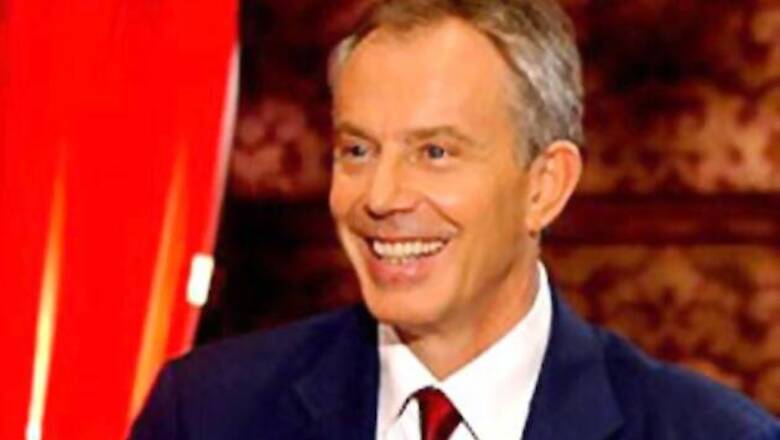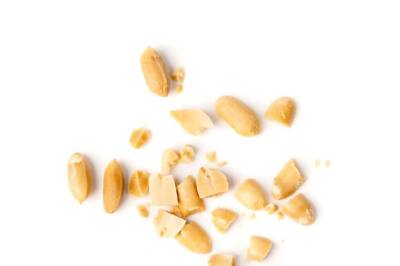
views
London: British leaders are forced to court powerful press barons such as Rupert Murdoch or risk savage media attacks which render them unable to govern effectively, former Prime Minister Tony Blair told an inquiry on Monday. Interrupted by a heckler who accused him of being a war criminal for supporting the US invasion of Iraq, Blair paused briefly before continuing to justify his ties to Murdoch with whom he said he developed a close friendship.
Blair cast himself as a politician facing the choice between being torn apart by what he once described as the media's "feral beasts" and getting his policies implemented.
But Blair, whose reputation for obsessive media management brought him so close to Murdoch that the tycoon could joke about flirting, said he became increasingly concerned about the unhealthy relationship between the media and politicians. "With any of these big media groups, you fall out with them and you watch out, because it is literally relentless and unremitting once that happens," Blair, looking tanned and smart in a navy suit and white shirt, told the Leveson inquiry.
"My view is that that is what creates this situation in which these media people get a power in the system that is unhealthy and which I felt, throughout my time, uncomfortable with. I took the strategic decision to manage this and not confront it but the power of it is indisputable." Blair is the most senior politician to date to appear before Leveson, an inquiry that has tarnished the British elite by showing the collusion between senior politicians, media tycoons and police. "If you fall out with the controlling element of the Daily Mail, you are then going to be subject to a huge and sustained attack," said Blair, who governed Britain from 1997 to 2007 after rebranding the Labour Party.
"Managing these forces was a major part of what you had to do and was difficult," said Blair. The inquiry has so far focused on the conduct of the media and the close ties between Murdoch's empire and serving ministers, helping the opposition Labour Party leader Ed Miliband consolidate his position with attacks on the current British Prime Minister David Cameron. But the grilling of Blair, who was renowned for trying to control the media by "spinning" news to gain the most favourable coverage, could undermine Miliband's attempt to portray Labour under his leadership as a party above courting media tycoons.
"I did not change our positions on core policy issues at all. On the other hand, managing these forces was a major part of what you had to do and was difficult," Blair said. "In articles we wrote for the Sun, for example, you stressed the bit of your policy that was going to appeal, but I didn't change the policy," he said. Sometimes using Murdoch's his first name, Blair said his friendship with Murdoch developed after leaving office in 2007, though he said it was clear that Murdoch called the shots in his media empire, not his newspaper editors.
Blair mentioned his decision, after stepping down as prime minister, to become a godfather to Murdoch's daughter Grace at a ceremony on the banks of the river Jordan. "Blair led the way in having no shame about courting Murdoch," said Ivor Gaber, professor of political journalism at City university. "He set the style and the standard and if you regard Cameron as the 'heir to Blair' then it's not exactly surprising that he followed suit." Murdoch told the inquiry last month that he had never asked a prime minister for anything.
Blair set the tone for his relationship with Britain's press when, before his first election victory in 1997, he flew to Australia in 1995 to speak before a gathering of Murdoch's executives who had previously used their British tabloids to vilify his Labour Party predecessors. The decision, mocked by rivals as an act of homage to the all-powerful media boss, infuriated much of his left-of-centre party who saw the Australian-born tycoon as a right-winger who had helped to keep them out of power for years. "People would be horrified," Blair said later in his autobiography. "On the other hand... not to go was to say carry on and do your worst, and we knew their worst was very bad indeed."
"The country's most powerful newspaper proprietor, whose publications have hitherto been rancorous in their opposition to the Labour Party, invites us into the lion's den. You go, don't you?" Blair's speech to Murdoch executives received a standing ovation and Murdoch indicated for the first time that he could be willing to switch the allegiance of his newspapers to the Labour Party. "If our flirtation is ever consummated Tony then I suspect we will end up making love like porcupines, very, very carefully," he told him.
With the backing of Murdoch's top-selling Sun tabloid, Blair swept to power in 1997 and again in 2001 and 2005. But with an ever increasing reputation for public relations "spin", he started to face questions over his sincerity.
Much of that came to a head when Blair and then US President George W Bush agreed to invade Iraq, going against the public opinion in Britain.



















Comments
0 comment